Understanding the Differences Between Ceramic, Porcelain and Stone Tiles
If you’re planning a renovation project involving tiling, you’ll quickly realise that there are many options. Three of the most popular types of tiles are ceramic, porcelain, and natural stone. Each has its own unique characteristics and benefits, as well as drawbacks.
In this blog post, we’ll explore the differences between these types of tiles and supply insights into how to choose the right one for your project.
Ceramic Tiles
Ceramic tiles are made from clay that has been fired at hot temperatures. They are available in assorted colours, patterns, and sizes, making them versatile and suitable for many applications. Ceramic tiles are also one of the most affordable types of tiles, making them a popular choice for budget-conscious projects. Using them as bathroom tiles, kitchen tiles or even outdoor pathways, the possibilities are endless If you’re still wondering if ceramic tiles are right for you, read our blog.
Benefits of Using Ceramic Tiles
Ceramic tiles have the advantage of being simple to install, which makes them a popular option for do-it-yourself projects. They may be mounted on both floors and walls and can be cut to fit any area. Ceramic tiles are stain and water resistant, which makes them a great option for moist spaces like bathrooms and kitchens.
These tiles are relatively low maintenance and easy to maintain. They can be cleaned with a moist towel or mop and don’t need any special cleaning agents. However, ceramic tiles may need to be resealed to preserve their finish and prevent stains, so it’s essential to keep this in mind to avoid damaging your tiles in the long run.
Ceramic tiles are among the least expensive types of tiles on the market in terms of price. They are a great option for homeowners looking to renovate their space on a budget. The endurance of artistic ceramic tiles, however, means that they might need to be replaced more frequently than other types of tiles.
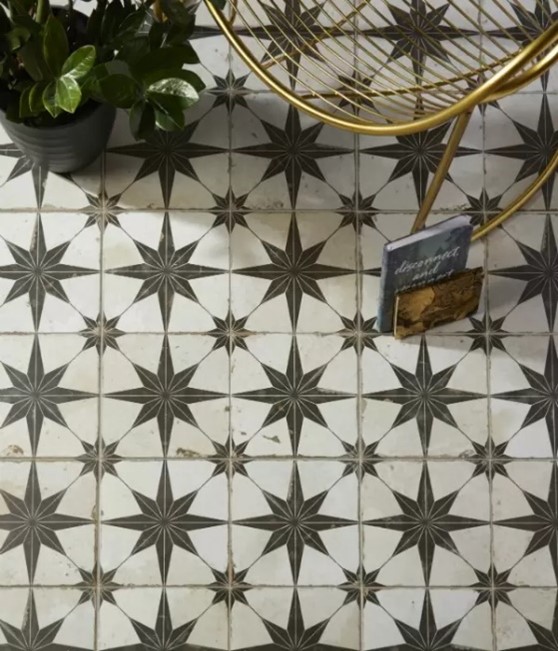
Porcelain Tiles
Clay and other materials are combined to create porcelain tiles, which are then burned at very high temperatures. They become denser and more resilient than ceramic tiles as a result of this process, as well as stain- and water-resistant. Porcelain tiles can be fashioned to resemble other materials like stone or wood and come in a huge variety of colours and designs.
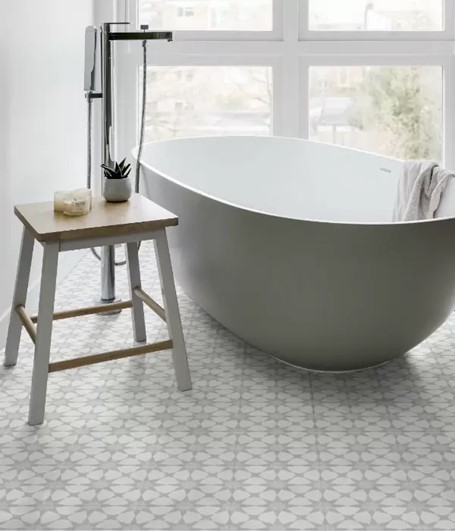
Get the look – Ca Pietra Atlas Porcelain Soft Grey
Benefits of Using Porcelain Tiles
Porcelain tiles have the advantage of being accessible in various hues and designs, as well as the ability to mimic other materials like stone or wood. This makes porcelain tiles flexible for various uses, including floors, walls, countertops, and backsplashes.
Porcelain tiles are rather simple to maintain in terms of care. They may be cleaned using a moist rag or mop; no special cleansers are required. However, much like ceramic tiles, porcelain tiles may occasionally need to be resealed to maintain their gloss and avoid discolouration.
Porcelain tiles cost more than ceramic tiles, but they’re still within reach for most people. They are a great option for homeowners looking for a more long-lasting and sturdier tile than ceramic tiles. Because of this, porcelain tiles are generally a more economical option.
Natural Stone Tiles
Natural materials like marble, granite, or travertine are used to make stone tiles. Due to the natural differences in the stone, they come in various colours and patterns, and each tile is distinctive. Although stone tiles are strong and long-lasting, they require more upkeep than porcelain or ceramic tiles.
Types of Natural Stone Tile
There are several types of natural stone that are commonly used for tiles, each with unique characteristics and benefits. Here are some of the most popular types of natural stone tiles:
- Marble
- Granite
- Travertine
- Slate
- Limestone
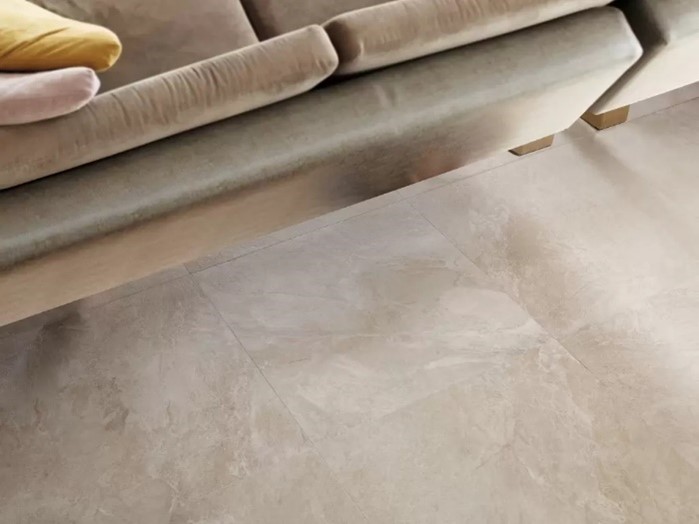
Get the look – Grespania Icaria Blanco
Benefits of Using Natural Stone
Unique appearance: Natural stone tiles are made from natural materials, meaning each tile is unique and has its own variations in colour and pattern. This gives your space a unique and one-of-a-kind appearance that cannot be replicated with other types of tiles.
Durability: They are extremely durable and long-lasting, and they can withstand heavy foot traffic and wear and tear. They are resistant to scratches, chips, and stains, making them an excellent choice for high-traffic areas.
Versatility: These tiles are available in a wide range of colours, patterns, and finishes, making them a versatile choice for many different applications. Textured stone will always elevate a design. They can be used on floors, walls, countertops, and backsplashes, and they can be used in both indoor and outdoor spaces.
Resale value: Natural stone tiles can add value to your home and increase its resale value. They are a luxurious and high-end choice that can make your home more attractive to potential buyers.
Eco-friendly: This tile material is an eco-friendly choice, as it is made from natural materials that are sustainable and renewable. They are also recyclable, which means that they can be reused or repurposed at the end of their lifespan.

Create Masterpieces With Tile and Stone
Choosing the right type of tile for your project depends on many factors, including your budget, the application, and the desired aesthetic.
Unlike wallpaper or paint, tiles will last many years, so finding the perfect type for your home is essential. For this reason, we offer free tile samples because whilst they may look good on screen, seeing them in person is critical to making the years of commitment these tiles deserve. Take a look through our extensive range to find a tile to take home and love today. We promise there will be one right for you and your home.
Contact a member of our team who are happy to help with any enquiries you might have.


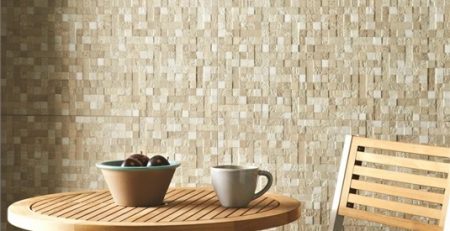


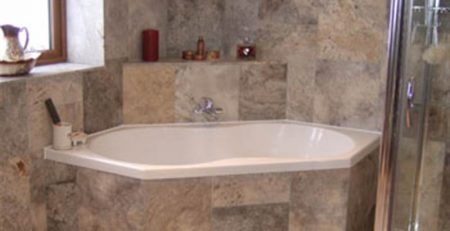


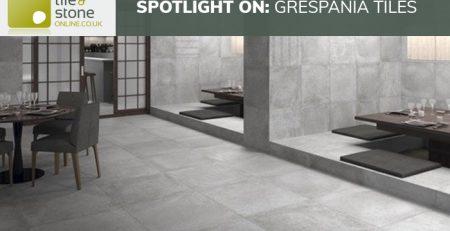



Leave a Reply